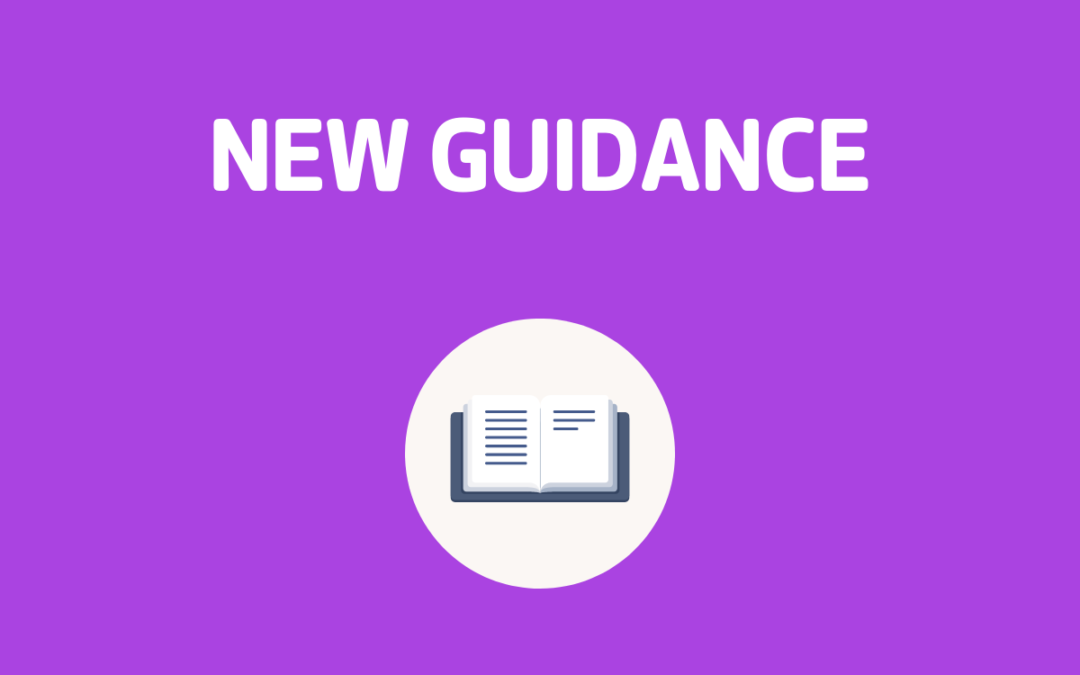
by Oscar Venus | Feb 1, 2022 | Main News Feed
Wearing a face covering or mask helps keep you and others safe from COVID-19. You can still catch and pass on the virus even if you have been vaccinated, so wearing a face covering helps to reduce the spread.
By law, everyone age 12 and over must wear a face covering in most indoor public places in Scotland.
Places you need to wear a face covering include:
- shops
- bars, restaurants, cafes and nightclubs
- churches and other places of worship
- public transport, including stations and bus stops
- at work (including tradespeople working in people’s homes)
You are also advised to wear a face covering outdoors in crowded places, and especially in places where people gather. For example, outdoor markets and large events. You may want to wear a face covering in the street if it is very busy.
There are exemptions to this rule for some people and situations. If exempt, you may choose not to wear a face covering. This would be the case if, for example:
- you’re under 12 years old
- you’ve got an illness or disability which means you cannot wear one
- wearing one would cause you severe distress
There are also some situations when you can temporarily remove your face covering, for example when exercising or when sitting at a table in a restaurant, cafe or bar or when you are eating or drinking. Go to the exemptions section for more information.
Wearing a face covering is just one of the things that you can do to keep yourself and others safe. You should take other precautions, such as:
We will keep the legal requirement to wear face coverings under regular review. Our decisions will continue to be guided by the latest clinical and scientific evidence, to ensure requirements are necessary and proportionate.
CLC Statement
The Construction Leadership Council (CLC) has published today a statement on the use of face coverings on construction sites in response to coronavirus to help provide a consistent approach across the industry. It is based on Government guidance in England and other restrictions and advice may apply in Scotland, Wales and Northern Ireland.
CLC Position
Where workers on site are not required to wear Respiratory Protective Equipment (RPE) and their workplace is crowded and enclosed (which may include welfare and changing facilities, site offices, site meeting rooms or site transport) and they come into contact with others they do not normally meet, their employer should make face coverings available and they should be worn.

by Clair Mooney | Jan 28, 2022 | Main News Feed, Skills
T-Levels are a new approach to sector engagement, designed to develop and secure advanced technical skills aligned to industry standards, and to address the increasing skills shortages and labour costs in industries such as construction, as well as the many benefits (for all parties) of placing committed and motivated students into workplaces, through industrial placements. Often technical students can make a genuine and lasting contribution and present a valuable new recruitment channel to any business.
FIS has been offered the opportunity to host an employer support package presentation, providing information on the benefits of T-Level’s and the support available for employers. There will also be opportunity to ask any questions you have. If you are interested in attending, please email georgeswann@thefis.org by Friday 11 February 2022.
About T-Levels
T-Levels are new courses which follow GCSEs and are deemed to be equivalent to three A levels. These two year courses, which launched September 2020, are for 16 to 19 year olds and have been developed in collaboration with employers and businesses so that the content meets the needs of industry and prepares students for work, further training or study.
T-Levels offer students a mixture of 80% classroom learning and 20% ‘on-the-job’ experience during an industry placement of at least 45 days. The placement can take place as a block, day release or a mix of these, and employers receive an incentive payment of £1000 per student. The scheme is designed for employer to:
- Grow the talent pipeline
- Attract a new generation of recruits from new sources
- Tackle skill shortages
- A chance to see potential future recruits using their skills and abilities
- Streamline recruitment processes
For details of the support available for employers please see T Levels and industry placement support for employers
There are currently two Construction T-Levels:
Design, surveying and planning for construction (available now) the course offers a core knowledge of how the construction industry works, the principles of design and the role of technology and sustainability. Students then have the chance to specialise in either Building services design, Civil engineering, Hazardous materials analysis or surveying.
Onsite construction (started September 2021) learners have the option to cover at least one trade from a choice of bricklaying, carpentry and joinery, painting and decorating or plastering. FIS are seeking support to develop an occupational specialism in interior systems installation.
There are a number of progression options open to students. These include skilled employment, an apprenticeship and higher education. UCAS points are attached to the overall T-Level achievement grade. If you would like to offer an Industrial Placement for T-Level students, you can register at Employers Next Steps or call 08000 150 600 (choose option 4).
There is a CSCS Card for Industry Placement: https://www.cscs.uk.com/card-type/industry-placement-card/ specially for T-Level and Traineeship students.

by Clair Mooney | Jan 27, 2022 | Main News Feed
All COVID‐19 ‘Plan B’ restrictions in England have now been lifted. This means that face coverings are no longer mandatory in any setting, although people are still advised to wear them in crowded and enclosed spaces where they come into contact with others they do not normally meet. They also remain a condition of travel on Transport for London (TfL) services. Build UK has made two minor revisions to the CLC Site Operating Procedures ‐ Version 9.1 to provide the most up to date guidance for sites and will review the Use of Face Coverings in Construction once the relevant Government guidance has been updated.
The legal requirement to self‐isolate after testing positive for COVID‐19 remains in place, and the Build UK COVID‐19 flowchart reflects the latest rules on self‐isolation.
Restrictions are also being eased in Scotland, Wales and Northern Ireland, although face coverings remain mandatory in certain settings in all three nations.

by Clair Mooney | Jan 25, 2022 | Main News Feed
The First Minister has delivered a
statement to Parliament and outlined further easing of measures.
Businesses can prepare to resume hybrid working from 31 January, enabling more people to have a flexible return to working between home and the office. Hybrid working guidance will be published shortly.
Testing requirements for fully vaccinated people arriving in Scotland are to be dropped from 4am on 11 February, following agreement at a cross-UK meeting. Travellers will still need to fill in passenger locator forms. Non vaccinated travellers will still be required to take pre-departure tests and a PCR test on or before day two – but the requirement for isolation will end – and they will no longer have to take a day eight test.
Other changes announced include the requirement for two metre physical distancing for indoor settings where people have a specific exemption from the need to wear a face covering – e.g. people leading religious services or carrying out some receptionist duties – reverting to one metre. In addition, face coverings will no longer be required for any adult taking part in organised activities when they are directly interacting with children under the age of five. Both of these changes are from Friday (28 January).
Guidance on the Close Contact Services Fund – which will provide financial support to businesses impacted by the requirement for physical distancing and capacity limits and advice to reduce contact within indoor settings that came into force from 9 December 2021 to 24 January 2022 – has been published. Information about funding to support the Scottish brewery industry has also been published.
A voluntary Distance Aware Scheme which will see free badges and lanyards will be available to people who wish to show others they would welcome additional space and extra care while out in public will formally launch in Scotland tomorrow (January 26). A stakeholder pack is attached which includes posters and social media assets and suggested posts.
Guidance for businesses and workplaces on reducing the risk of COVID-19 and supporting staff and customers has been updated to enable businesses to take reasonable measures to limit the rapid spread of the Omicron variant.
The NHS Inform coronavirus webpage is the fastest way for people to get the latest health advice and information.

by Clair Mooney | Jan 24, 2022 | Main News Feed
There is little doubt that with escalating costs forcing us to look ever more carefully at productivity, initiatives like the Golden Thread and BIM and basic customer requirements for us to communicate better, share information in a more structured way and streamline processes that the wave of new digital solutions hitting us are part of the solution, but they can feel part of the problem!
The good news is that help is out there. Following on from developing the Digital Spine in 2021 (a tool to help explain and contextualise technology), FIS have launched a new impartial digital construction helpline and mentoring service in partnership with Digital Construction Skills. Beyond the advice, guidance and developing case studies we are also looking at opportunities to identify funding to support investment. Beyond R&D Tax Credits (which can be an excellent way to recoup investment), we have identified two options that may be worth consideration for FIS Members.
The CITB Skills and Training Fund
Get £10 – £25k for digital Skills training including laser scanner, BIM, AutoCAD, 3D mapping and modelling, robotic total station or drones training.
The criteria for the CITB medium sized Skills and Training Fund has changed. Through this fund, construction companies with between 100 and 250 employees can apply for between £10,000 and £25,000 (depending on their size). Note: CITB have removed the criteria that the training must be new, therefore allowing businesses to repeat things they have done before or use the funding for skills related training.
The Help to Grow Digital scheme to support smaller businesses in adopting digital technologies is now open for applications.
Under the scheme, eligible businesses can receive discounts of up to £5,000 off the retail price of approved digital accounting and CRM software from leading technology suppliers. This software will assist them in effectively managing finances and building customer relationships, and help them to scale up.
Businesses can also access practical support and advice on how to choose the right digital technologies to boost their growth and productivity through a new online platform.
A toolkit to promote the scheme is available here.
Commenting on these funds, Saffron Grant FIS Digital Champion stated:
“This is another example of the support out there for SMEs to take that giant leap into the digital space that in many cases is only a small step! Through the FIS free digital helpline we can help to talk you through the options and help you identify how you can make use of funding of this type. The digital revolution is happening in construction, but it comes with a lot of noise and misinformation. The work we are doing with FIS is about helping to tap into the right support and to find your digital path.”
More support via the FIS Digital Toolkit


by Clair Mooney | Jan 21, 2022 | Main News Feed
In light of recent figures from ONS on vaccine rates, Construction Minister Lee Rowley is urging construction workers to get their COVID‐19 booster. The Government has published a free employer toolkit containing a range of resources, such as briefing sheets, animations and posters, which can be used to increase awareness within the workplace and provide workers with access to reliable and accurate information on vaccines. Employers are also being asked to be as flexible as possible when it comes to workers getting their jabs, which could include giving paid time off work to attend vaccination appointments.
As businesses may be considering a vaccination policy, FIS Associate Member Citation has updated its guidance for employers to cover the potential use of the NHS COVID Pass for accessing sites, which is generally not advisable. Citation is also hosting a free webinar next Thursday 27 January from 10 – 11:00am to discuss and take questions on vaccination and testing of employees.







